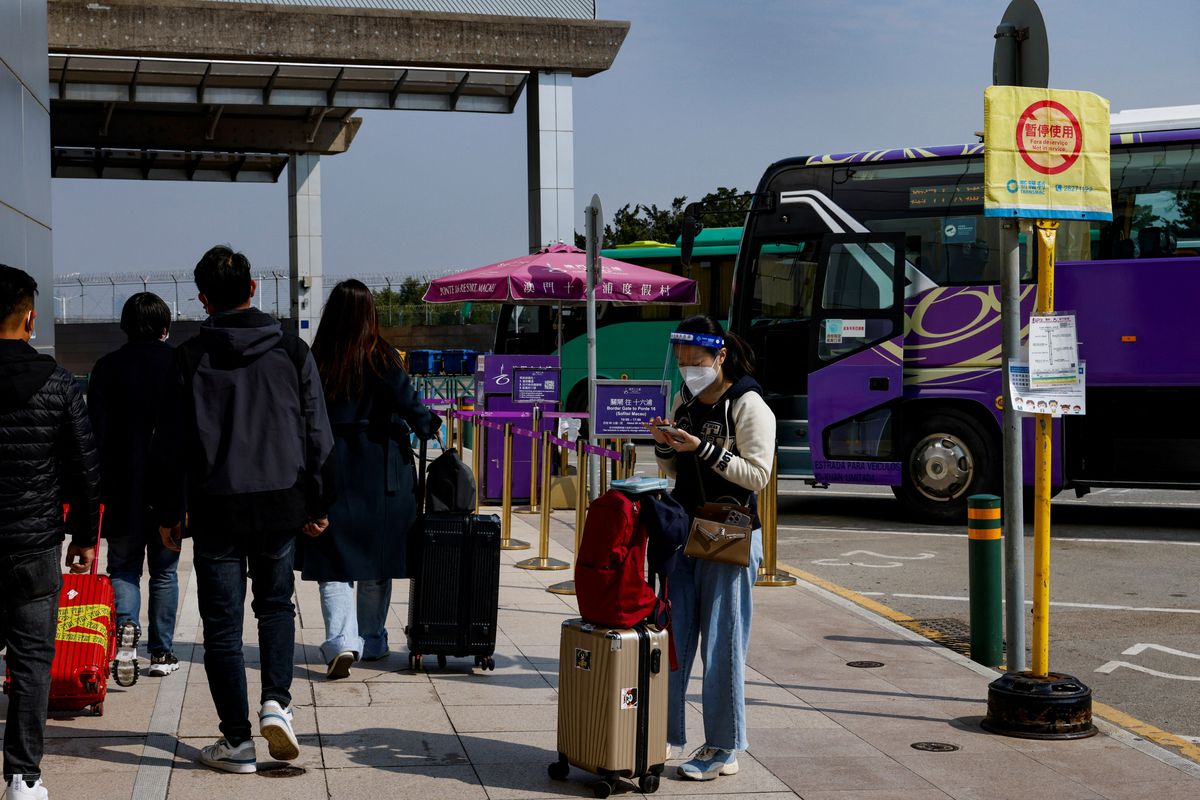Where are Chinese tourists flocking to next?
It looks like China is ready to hit the road (and skies) again.

A few minutes every morning is all you need.
Stay up to date on the world's Headlines and Human Stories. It's fun, it's factual, it's fluff-free.
The backstory: Since the beginning of the pandemic, China has held on to a zero-COVID stance, which has meant strict curbs, lockdowns and restrictions to prevent the virus from spreading. But recently, China pivoted away from this approach and announced its borders would open up and travel would resume beginning this week.
More recently: Of course, not all countries are ready to welcome Chinese tourists with open arms. Some, including the US, Germany, France, Canada, Japan, Australia and South Korea, have added COVID testing requirements for inbound travelers from the region. The EU has also "strongly encouraged" its member states to do the same. But, some Southeast Asian countries that rely a lot on tourism, like Thailand, Indonesia, Singapore and the Philippines, have kept their rules more relaxed for Chinese tourists.
The development: It looks like China is ready to hit the road (and skies) again. According to Chinese travel site Trip.com, bookings for overseas travel during the Lunar New Year holiday are through the roof – a whopping 540% higher than last year. The top destinations are in the Asia Pacific region, including Singapore, Thailand, Japan and Hong Kong. But travel to Australia, the US and the UK also grew.
This could be great news for economies that have taken a beating during the pandemic. Goldman Sachs analysts predict that Hong Kong, Thailand, Vietnam and Singapore could gain the most if China's travel services returned to 2019 levels. For example, Goldman Sachs says Hong Kong's GDP could rise around 7.6% thanks to increased exports and tourism income.
Key comments:
"We estimate that Hong Kong, Thailand, Vietnam and Singapore would benefit the most if China's travel service imports were to return to 2019 levels," said Goldman Sachs analysts.
"Generally, individuals are pragmatic and countries will welcome Chinese tourists due to their spending power," said Steve Saxon, a partner at McKinsey in Shenzhen that leads the company's Asia travel practice, on his belief that China's outbound travel will fully recover this year.
"Europe has found a joint response to the pandemic situation in China. This is precisely what we as the federal government have been working towards," said German Health Minister Karl Lauterbach, referring to the EU's recommendation for Chinese travelers to do pre-flight testing.
"We believe the current numbers being published from China underrepresent the true impact of the disease in terms of hospital admissions, in terms of ICU admissions, particularly in terms of death," said Mike Ryan, the WHO's emergencies director, referring to China's data on its COVID-related hospitalizations and deaths.




Comments ()